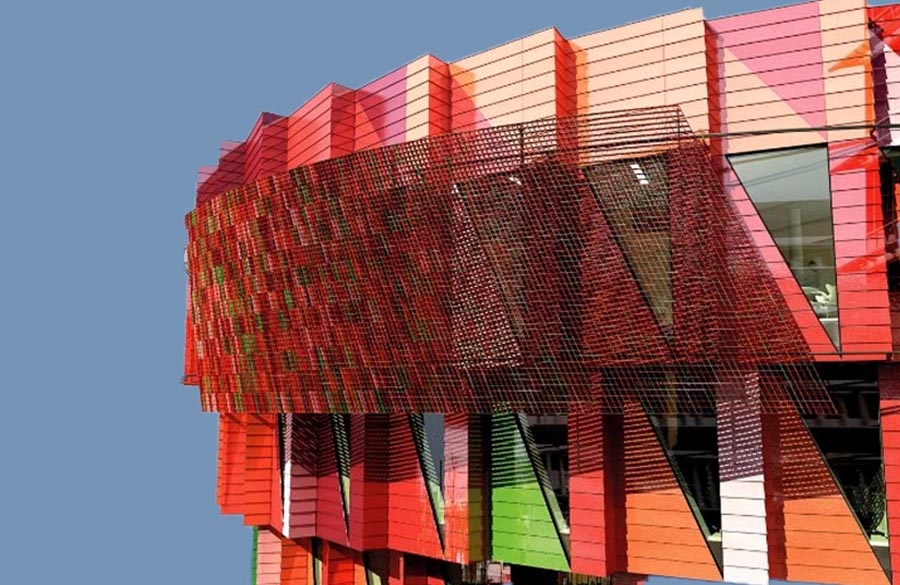How Does Architecture Integrate Principles Of Energy-efficient Façade Design?

The Importance of Modern, Energy-Efficient Sustainability in today's society cannot be overstated. It is a crucial element that enables us to mitigate the impact of human activities on the environment and helps in sustaining the planet for future generations. Energy-efficient sustainability is a process that can be refined through time and effort, and with a focus on the long-term benefits, not just the short-term ones. The following points will give you an overview of why energy-efficient sustainability is essential, and how it can be refined to better meet our needs:
Reducing Carbon Footprint
The first and foremost benefit of energy-efficient sustainability is that it helps in reducing the carbon footprint of individuals, businesses, and organizations. By using energy-efficient appliances, vehicles, and machinery, we can reduce the amount of energy that is required to achieve the same results, and thus lower the emission of greenhouse gases that contribute to global warming. Moreover, by promoting the use of renewable resources such as solar energy, wind energy, and hydroelectricity, we can significantly reduce the dependence on non-renewable sources of energy such as fossil fuels, which are a major contributor to climate change.
Cost Savings
Another significant benefit of energy-efficient sustainability is that it can result in significant cost savings for individuals, businesses, and organizations. By reducing energy consumption, we can lower the cost of energy bills, maintenance costs, and other associated costs. Furthermore, by investing in energy-efficient technologies, we can save on capital expenditure in the long run, as these technologies are durable and require less maintenance, resulting in lower operational costs over time.
Health Benefits
Energy-efficient sustainability not only benefits the environment and businesses, but it can also have a positive impact on public health. By reducing the amount of greenhouse gas emissions, we can reduce air pollution, improve air quality, and thus reduce respiratory diseases and illnesses related to air pollution. Also, by promoting healthy lifestyles and sustainable practices, we can encourage healthy habits in individuals and communities.
Increased Productivity
Investing in energy-efficient technologies and sustainable practices can also lead to increased productivity in businesses and organizations. By reducing energy consumption, we can lower the cost of energy bills, and redirect the saved money towards research and development, employee training, and other areas that can help in achieving organizational goals. Furthermore, promoting sustainable practices can improve the working environment, reduce stress, and promote a sense of community and teamwork among employees, resulting in increased productivity and job satisfaction.
Community Development
Energy-efficient sustainability can also contribute to community development in various ways. By promoting the use of renewable resources such as solar energy, wind energy, and hydroelectricity, we can reduce the dependence on non-renewable sources of energy such as fossil fuels, which are often associated with political instability, price volatility, and other issues. Furthermore, by encouraging sustainable practices such as recycling, composting, and waste reduction, we can create a sense of community and shared responsibility, resulting in a stronger and more resilient society.
FAQ
What is Energy-Efficient Sustainability?
Energy-efficient sustainability is a process that aims to reduce energy consumption and increase the use of renewable resources to achieve sustainable development. It involves promoting the use of energy-efficient technologies and sustainable practices such as solar energy, wind energy, recycling, composting, and waste reduction.
Why is Energy-Efficient Sustainability important?
Energy-efficient sustainability is crucial because it helps in mitigating the impact of human activities on the environment and helps in sustaining the planet for future generations. It can also result in significant cost savings, improve public health, increase productivity, and promote community development.
How can I contribute to Energy-Efficient Sustainability?
You can contribute to energy-efficient sustainability in various ways, such as by using energy-efficient appliances and vehicles, promoting sustainable practices in your workplace and community, investing in renewable resources such as solar energy and wind energy, and supporting policies and regulations that promote energy-efficient sustainability.
What are the challenges of Energy-Efficient Sustainability?
Some of the challenges of energy-efficient sustainability include high upfront costs, technological limitations, cultural resistance, lack of awareness, and political and economic barriers. However, with a concerted effort and a focus on long-term benefits, these challenges can be overcome through innovation, education, and collaboration.
What are the benefits of using renewable resources such as solar energy and wind energy?
The benefits of using renewable resources such as solar energy and wind energy include reduced dependence on non-renewable sources of energy such as fossil fuels, significant cost savings over time, improved public health and air quality, increased energy security and independence, and reduced carbon footprint.
Why is recycling important for Energy-Efficient Sustainability?
Recycling is important for energy-efficient sustainability because it helps in reducing the amount of waste that is sent to landfills, which can result in the emission of greenhouse gases such as methane. Furthermore, recycling helps in conserving scarce resources such as water, energy, and raw materials, resulting in significant cost savings and reduced environmental impact.
In conclusion, energy-efficient sustainability is a crucial element that enables us to mitigate the impact of human activities on the environment and helps in sustaining the planet for future generations. By reducing energy consumption, promoting sustainable practices, and investing in renewable resources such as solar energy and wind energy, we can significantly reduce our carbon footprint, save on costs, improve public health, increase productivity, and promote community development. As we continue to refine our understanding of energy-efficient sustainability, we can work towards achieving a sustainable future for all.




Post a Comment for "How Does Architecture Integrate Principles Of Energy-efficient Façade Design?"